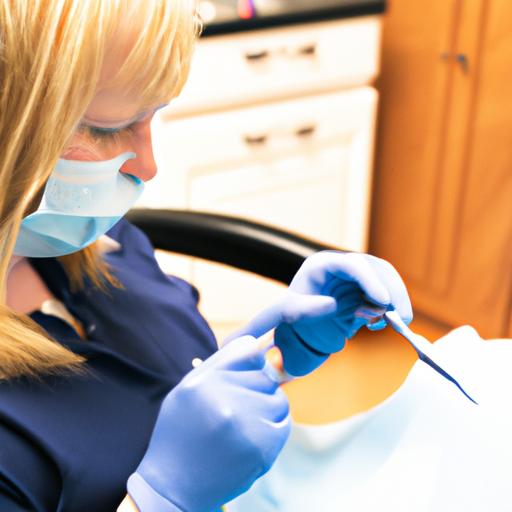
Learn how dentists play a crucial role in dental plaque removal to maintain optimal oral health. Discover effective techniques and benefits. Read more!
Introduction
Maintaining good oral hygiene is crucial for a healthy smile. While regular brushing and flossing are essential, sometimes dental plaque can accumulate, leading to various oral health issues. That’s where dentists come in. As experts in oral care, dentists play a vital role in dental plaque removal and ensuring optimal oral health. In this article, we will delve into the importance of dental plaque removal and how dentists can help keep your teeth and gums healthy.
Understanding Dental Plaque
To grasp the significance of dental plaque removal, it’s essential to understand what dental plaque is and how it affects our oral health.
Definition and Composition of Dental Plaque
Dental plaque is a sticky, colorless film that forms on the teeth and along the gumline. It consists of bacteria, food particles, and saliva. When left untreated, this plaque can harden into tartar or calculus, which can only be removed by professional dental cleaning.
Causes and Consequences of Dental Plaque Build-up
The primary cause of dental plaque is poor oral hygiene. Inadequate brushing and flossing allow plaque to accumulate, leading to numerous oral health problems, such as tooth decay, gum disease, and bad breath. Additionally, certain factors like smoking, a sugary diet, and genetics can contribute to an increased risk of plaque formation.
Dental Plaque Removal Techniques
Dentists employ various techniques to remove dental plaque effectively. These techniques can be categorized into professional dental cleaning performed by dentists and at-home dental plaque removal methods.
Professional Dental Cleaning by Dentists
-
Scaling: Scaling is a common dental procedure where dentists use special tools to remove plaque and tartar from the tooth surfaces and below the gumline. This helps prevent gum disease and promotes healthy gums.
-
Root Planing: Root planing is a deeper cleaning procedure that targets the roots of the teeth. It involves smoothing out rough areas and removing bacteria from the root surfaces. This treatment is often recommended for patients with gum disease.
At-Home Dental Plaque Removal Methods
While professional dental cleanings are essential, maintaining good oral hygiene at home is equally important. Here are some effective at-home dental plaque removal methods:
-
Brushing Techniques: Brushing your teeth at least twice a day with a soft-bristled toothbrush is crucial for plaque removal. Ensure you brush all surfaces of your teeth using gentle, circular motions. Don’t forget to replace your toothbrush every three to four months.
-
Flossing Techniques: Flossing helps remove plaque and food particles from between your teeth and along the gumline. Use a piece of dental floss or an interdental cleaner to clean these hard-to-reach areas. Proper flossing techniques can significantly contribute to plaque removal.
-
Mouthwash and Water Flossing: Using an antimicrobial mouthwash can help reduce plaque-causing bacteria and freshen your breath. Water flossing with a water flosser is another effective method for removing plaque and debris from between your teeth and along the gumline.
Benefits of Regular Dental Plaque Removal
Regular dental plaque removal, both by dentists and at home, offers numerous benefits for your oral health and overall well-being.
Prevention of Dental Issues
-
Tooth Decay: Dental plaque harbors bacteria that produce acids, leading to tooth decay. By removing plaque regularly, you can prevent cavities and preserve the integrity of your teeth.
-
Gum Diseases: Plaque accumulation can irritate the gums, leading to gingivitis and, if left untreated, progressing to periodontitis. Regular plaque removal reduces the risk of gum diseases, ensuring healthier gums.
Maintenance of Oral Health and Hygiene
Regular dental plaque removal helps maintain optimal oral health and hygiene. It keeps your teeth clean, prevents bad breath, and promotes a confident smile. Additionally, a healthy mouth contributes to overall well-being, as oral health is connected to various systemic conditions.
Improvement of Overall Health
Scientific studies have linked poor oral health to various systemic conditions, including cardiovascular disease, diabetes, and respiratory infections. By prioritizing dental plaque removal, you can lower the risk of these health issues and enjoy better overall health.
In conclusion, dental plaque removal is a fundamental aspect of maintaining good oral health. Dentists play a crucial role in effectively removing plaque and preventing oral health problems. By adopting proper oral hygiene practices and seeking professional dental cleanings regularly, you can ensure a healthy smile that lasts a lifetime.
For more information on dental plaque removal techniques and maintaining oral hygiene, check out the following resources:
- Tips and Guide to Effective Dental Plaque Removal
- Removal of Dental Plaque and Calculus: What You Need to Know
- Baking Soda for Dental Plaque Removal: Fact or Fiction?
- The Role of Dental Hygienists in Plaque Removal
Remember, prioritizing dental plaque removal is not just about maintaining a beautiful smile; it’s about safeguarding your overall health. Take charge of your oral health today for a brighter and healthier future.






